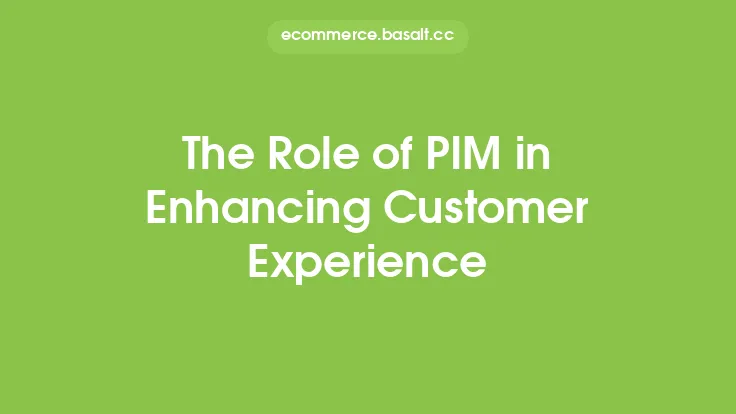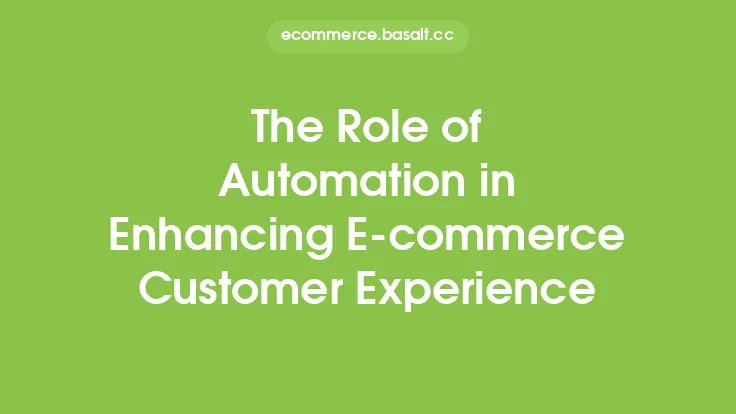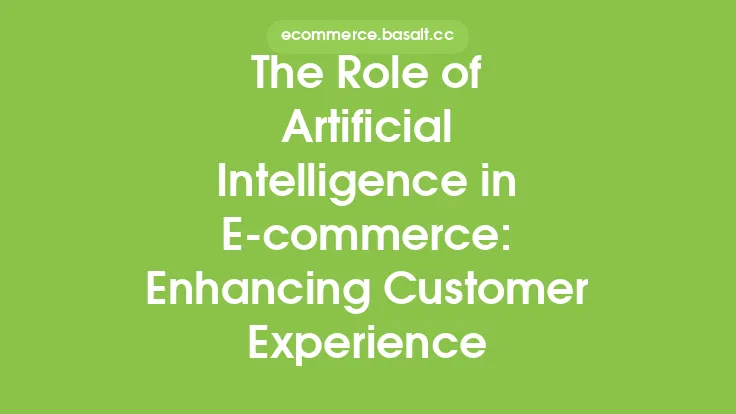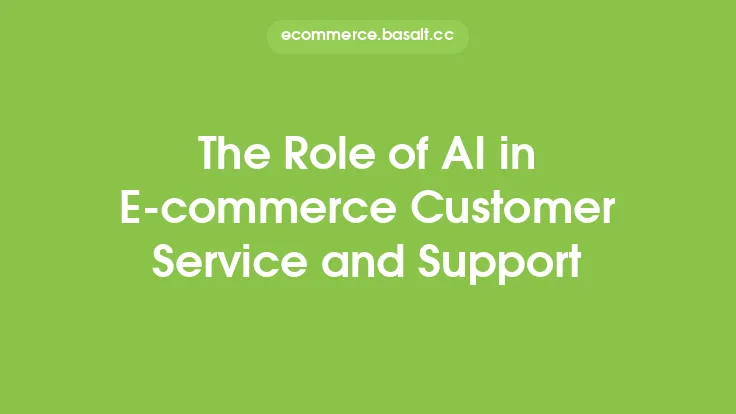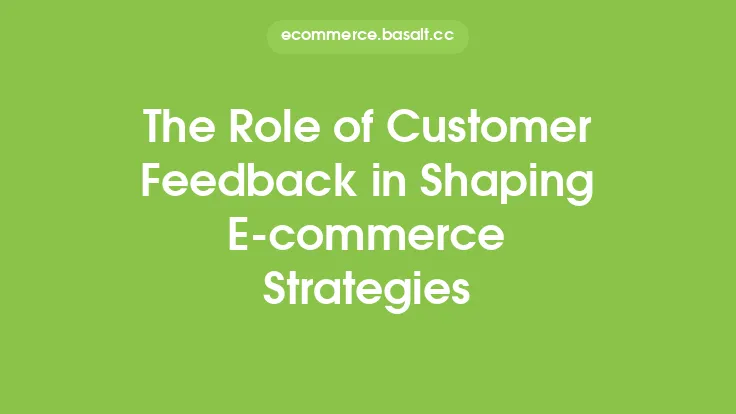In today's competitive e-commerce landscape, providing an exceptional customer experience is crucial for businesses to stand out and drive long-term growth. One key technology that plays a vital role in enhancing customer experience is Customer Relationship Management (CRM). CRM is a strategic approach that enables businesses to manage and analyze customer interactions, preferences, and behaviors across various touchpoints. By leveraging CRM, e-commerce companies can gain a deeper understanding of their customers, tailor their experiences, and build strong, lasting relationships.
What is CRM and How Does it Work?
CRM is a software solution that helps businesses to centralize customer data, track interactions, and automate processes. It provides a 360-degree view of customers, enabling companies to understand their needs, preferences, and behaviors. CRM systems typically include features such as contact management, sales force automation, marketing automation, and customer service and support. By integrating these features, businesses can streamline customer interactions, improve communication, and enhance the overall customer experience.
Key Benefits of CRM in Enhancing Customer Experience
The implementation of CRM can have a significant impact on customer experience. Some of the key benefits include:
- Personalization: CRM enables businesses to tailor experiences to individual customers based on their preferences, behaviors, and purchase history.
- Improved Communication: CRM helps businesses to communicate effectively with customers across various channels, including email, phone, social media, and live chat.
- Enhanced Customer Service: CRM provides businesses with a comprehensive view of customer interactions, enabling them to respond quickly and effectively to customer inquiries and issues.
- Increased Efficiency: CRM automates many routine tasks, freeing up staff to focus on high-value activities such as building relationships and resolving complex customer issues.
- Better Decision-Making: CRM provides businesses with valuable insights and analytics, enabling them to make informed decisions about customer experience strategies and investments.
CRM Features that Enhance Customer Experience
Several CRM features are particularly effective in enhancing customer experience. These include:
- Customer Profiling: This feature enables businesses to create detailed profiles of customers, including their contact information, purchase history, and preferences.
- Interaction Tracking: This feature allows businesses to track customer interactions across various channels, including email, phone, and social media.
- Automated Workflows: This feature enables businesses to automate routine tasks and processes, such as sending welcome emails or follow-up notifications.
- Analytics and Reporting: This feature provides businesses with valuable insights and analytics, enabling them to measure customer experience metrics and make informed decisions.
Best Practices for Implementing CRM to Enhance Customer Experience
To get the most out of CRM and enhance customer experience, businesses should follow several best practices. These include:
- Define Clear Goals and Objectives: Businesses should clearly define their customer experience goals and objectives, and ensure that their CRM strategy is aligned with these goals.
- Choose the Right CRM Solution: Businesses should select a CRM solution that meets their specific needs and requirements, and is scalable and flexible.
- Integrate CRM with Other Systems: Businesses should integrate their CRM system with other systems, such as marketing automation and customer service software, to create a seamless and integrated customer experience.
- Train and Support Staff: Businesses should provide comprehensive training and support to staff, to ensure that they are able to use the CRM system effectively and provide exceptional customer experiences.
Measuring the Success of CRM in Enhancing Customer Experience
To measure the success of CRM in enhancing customer experience, businesses should track a range of metrics and key performance indicators (KPIs). These may include:
- Customer Satisfaction (CSAT) Scores: This metric measures the level of customer satisfaction with the overall experience.
- Net Promoter Score (NPS): This metric measures the likelihood of customers to recommend the business to others.
- Customer Retention Rates: This metric measures the percentage of customers who continue to do business with the company over time.
- First Contact Resolution (FCR) Rates: This metric measures the percentage of customer issues that are resolved on the first contact.
By tracking these metrics and KPIs, businesses can gain valuable insights into the effectiveness of their CRM strategy and make informed decisions about how to improve customer experience.

